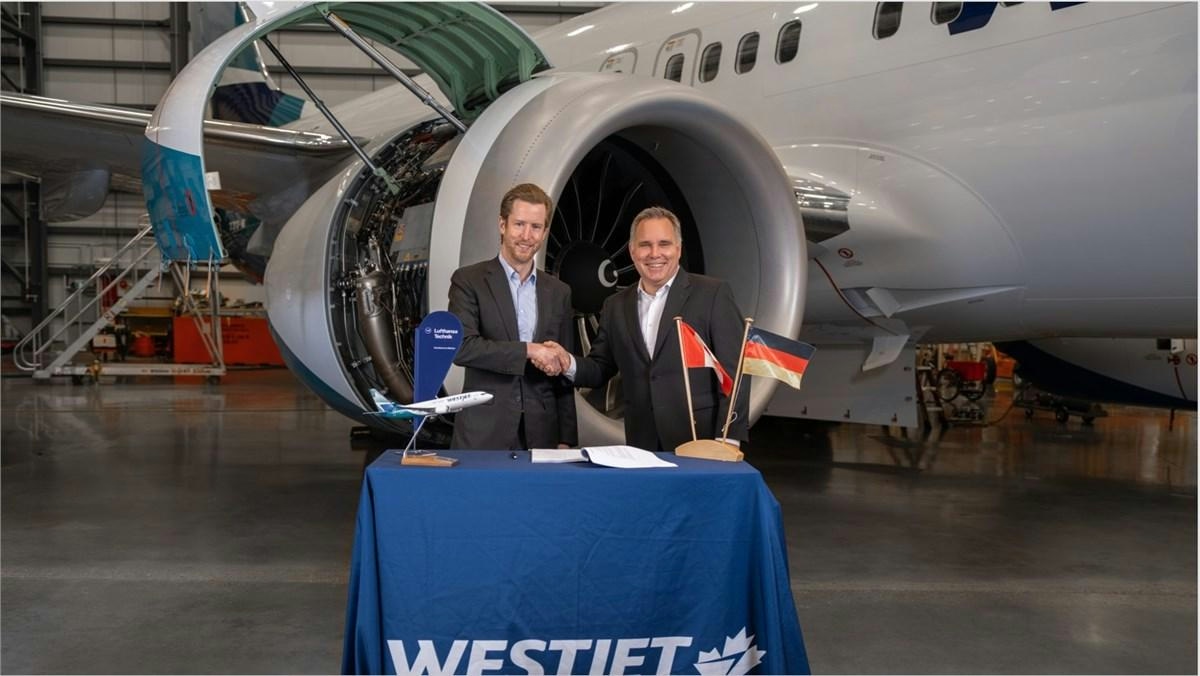AeroGenie — Uw intelligente copiloot.
Trending
Categories
KF Aerospace Powers Up Airline Expansion in 2025 with Major Maintenance and Fleet Integration Deals

KF Aerospace Powers Up Airline Expansion in 2025 with Major Maintenance and Fleet Integration Deals
KF Aerospace is poised for substantial growth in 2025, reinforcing its status as a key player in Canada’s aviation maintenance, repair, and overhaul (MRO) industry. The company is intensifying its collaborations with prominent commercial and domestic airlines while expanding its operational footprint across major Canadian airports. This strategic expansion is driven by rising industry demand and a commitment to delivering customized, high-quality maintenance solutions for the nation’s largest carriers.
Strengthening Airline Partnerships
In 2025, KF Aerospace has significantly broadened its partnerships with leading Canadian airlines, including Air Canada, Flair Airlines, and WestJet. These new agreements demonstrate the company’s adaptability to evolving maintenance strategies within the domestic aviation sector.
For Air Canada, KF Aerospace has extended its services beyond routine inspections to encompass comprehensive support, now incorporating advanced X-ray inspections and engine servicing for the Airbus A320 fleet. This development highlights KF’s capability to provide end-to-end MRO solutions across a diverse range of aircraft types. In the case of WestJet, following the integration of Sunwing Airlines and Swoop, KF Aerospace is spearheading the standardization of interiors and systems across the combined fleet. This complex initiative is essential for operational efficiency, ensuring that each aircraft complies with WestJet’s rigorous standards while minimizing disruption to daily operations. Meanwhile, KF Aerospace has secured maintenance contracts tailored to Flair Airlines’ operational schedules, supporting the carrier’s dedication to safe and reliable service for Canadian travelers. Collectively, these partnerships reinforce KF Aerospace’s reputation as a trusted partner for airlines focused on fleet care and modernization.
Expanding Airport Operations and Capabilities
KF Aerospace continues to invest heavily in its established Canadian airport locations. Kelowna International Airport (YLW) remains the company’s largest hub, employing 775 staff and offering a comprehensive suite of services including maintenance, fleet leasing, charter operations, and extensive training programs for pilots and technicians. Capital investments at YLW are ongoing, aimed at expanding hangar capacity and introducing next-generation training devices to enhance operational readiness.
Hamilton International Airport (YHM), with a workforce of 221 employees, serves as KF’s second-largest site. It provides line and heavy maintenance, component overhaul, and supply chain management services. Plans are in place to further develop YHM’s capabilities by enhancing line and base checks and accelerating quick-turn services. These expansions are designed to meet the demands of a growing fleet and increasingly stringent service level agreements across North America.
Navigating Growth Amid Industry Challenges
As KF Aerospace scales its operations to accommodate increased demand from new contracts with Air Canada, Flair Airlines, and WestJet, it faces challenges related to expanding maintenance capacity, integrating new technologies, and implementing workforce training programs. Ensuring seamless integration and overcoming implementation hurdles remain top priorities for the company.
The competitive landscape is intensifying, with other MRO providers such as Vietjet Airlines expanding their own fleets and maintenance capabilities in pursuit of greater market share. Industry analysts are closely monitoring KF Aerospace’s ability to sustain service quality and operational efficiency amid rapid growth. Forecasts, including Parker’s projection of an 8% increase in the aerospace segment by fiscal 2026, indicate a robust and competitive environment. To maintain its leading position, KF Aerospace must continue to innovate and adapt, securing its role as an indispensable partner for Canada’s foremost airlines while navigating the complexities of expansion and heightened competition.

Emirates Unveils Cabin Design for New Boeing 777X

Eighteen Years On, the Airbus A380 Remains Central to a $34 Billion Airline

How a boom in luxury airline seats is slowing down jet deliveries

Navitaire Outage Attributed to Planned Maintenance

DigiYatra Debuts Outside Aviation at India AI Impact Summit

Vietnam Orders Strengthen Boeing’s Commercial Outlook

Airbus Signals Uncertainty Over Future A400M Orders

JobsOhio Awards $2 Million Grant to Hartzell Propeller for Innovation Center

Collins Aerospace Tests Sidekick Autonomy Software on YFQ-42A for U.S. Air Force CCA Program

How the Airbus A350-1000 Compares to the Boeing 777
